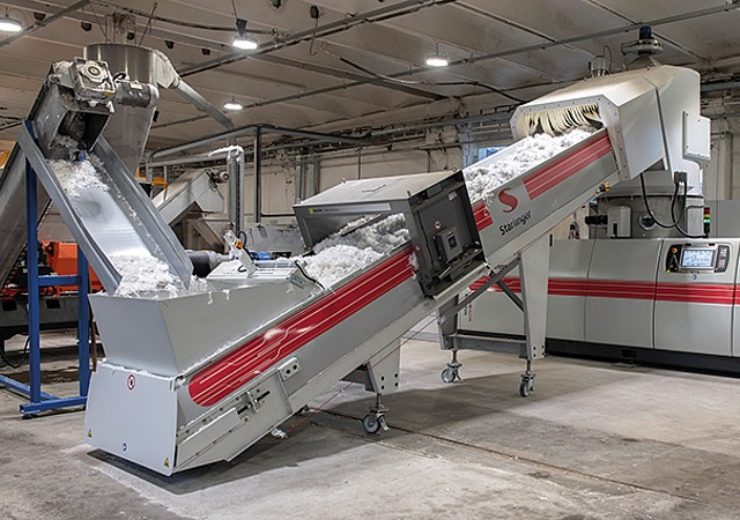CALEX operates two Starlinger recycling lines, of which one line for processes big bags, the other for recycling coloured, transparent and highly printed LDPE packaging films

Image: Starlinger recoSTAR dynamic 105 C-VAC at CALEX. Photo: courtesy of Starlinger Group.
Romanian plastic recycling company CALEX has invested in Starlinger recycling line for the post-consumer film in Romania.
The new Starlinger recoSTAR dynamic 105 C-VAC was installed at the facility in Satu Nou de Jos in Groși, Romania in July this year.
The investment marks the seventh Starlinger recycling line, of which four were installed in Romania and three at CANDI Plastic Recycling in Sollenau/Austria.
The recycling company processes post-consumer waste such as films and PE/PP pipes at its facility in Romanian while it recycles mainly industrial waste from plastic production such as rejects or production scrap at the Austrian site.
CALEX operates two Starlinger recycling lines of which one line for processes big bags, the other for recycling coloured, transparent and highly printed LDPE packaging films.
CALEX recycles 600-700 tonnes of plastic waste each month
CALEX managing director Gheorghe Campan said: “Our regular customers have to be able to rely on the quality of the regranulate.
“We installed a second Starlinger ‘dynamic’ in July because the first line has proven its excellent suitability for post-consumer recycling.
“The lines are equipped with different filter systems, which gives us flexibility when processing material with contaminants such as aluminium, sand, and paper.”
A family-run company, CALEX recycles 600-700 tonnes of plastic waste each month at its facility in Romanian.
In May this year, South Africa-based PET bottle materials recycler Extrupet Group has invested in a recoSTAR PET 165 HC iV+ line to meet the demand from the customers for rPET in the region.
The new recycling line will be installed at the facility by early next year, which is expected to achieve a throughput of around 1,900 kg/h, which is slightly more than the first recycling line.
The new line will be equipped with a larger solid-state polycondensation unit to further enhance the cleaning efficiency, allowing setting a new benchmark in terms of rPET pellet quality.
